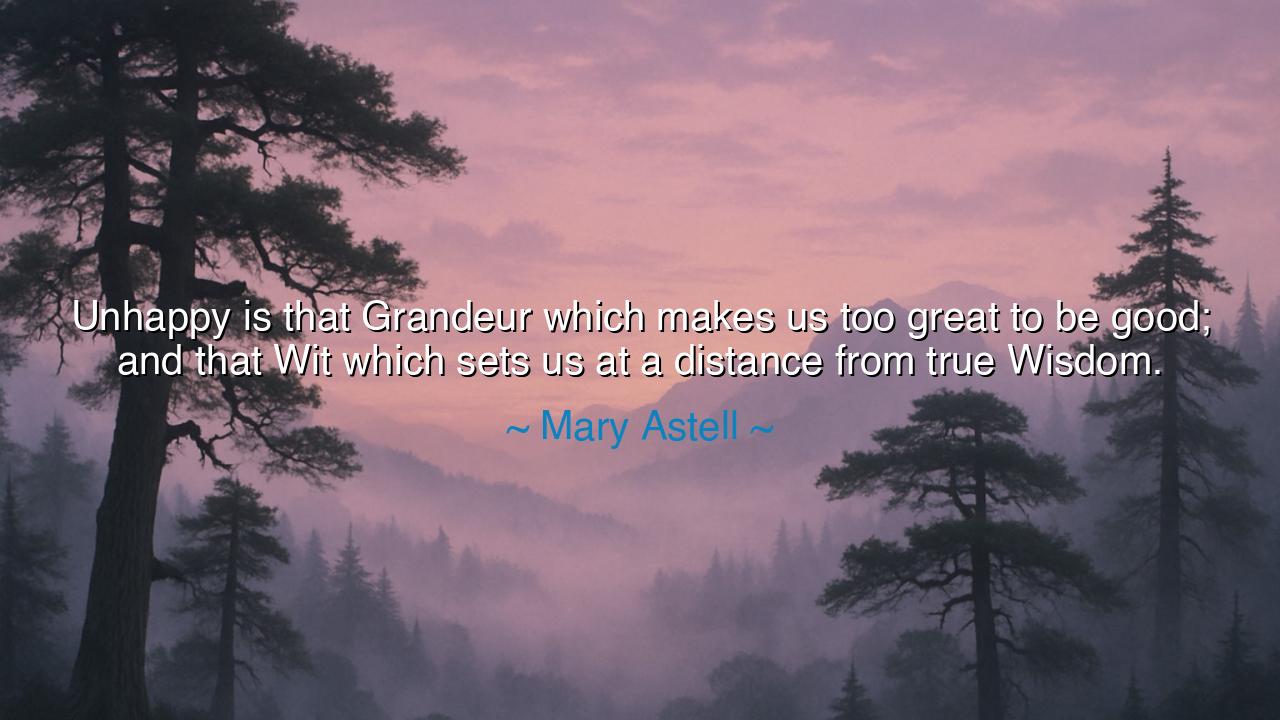
Unhappy is that Grandeur which makes us too great to be good;
Unhappy is that Grandeur which makes us too great to be good; and that Wit which sets us at a distance from true Wisdom.






Mary Astell, the fierce voice of reason in an age when women were silenced, proclaims with solemn warning: “Unhappy is that Grandeur which makes us too great to be good; and that Wit which sets us at a distance from true Wisdom.” In this saying she strikes at the false idols of the world—Grandeur that corrupts the heart with pride, and Wit that dazzles but blinds. For power and cleverness, when severed from goodness and wisdom, do not exalt the soul; they diminish it, leaving only emptiness disguised as greatness.
The ancients knew this peril well. Solon of Athens taught that the true measure of a man was not wealth or magnificence but virtue. Kings who made themselves “too great to be good” soon found their thrones crumble beneath them, for grandeur without goodness is a house built on sand. Likewise, the Sophists of Greece wielded dazzling wit, twisting words to impress, but Socrates unmasked them as hollow, for their cleverness had wandered far from true wisdom.
History bears luminous testimony. Louis XIV of France, the “Sun King,” wrapped himself in splendor so blinding that he believed himself above the ordinary duties of kindness and humility. His grandeur outshone his goodness, and though his reign glittered, it left his people impoverished and the seeds of revolution sown. By contrast, Marcus Aurelius, clothed in imperial purple, remembered that power was nothing if not ruled by justice and compassion. His humility preserved his soul where grandeur alone would have destroyed it.
So too with wit: it is a noble gift, but dangerous when not guided by truth. Voltaire, master of irony, struck down hypocrisy with his words, yet often his wit stung without healing. Astell reminds us that wit must bow before wisdom, or else it becomes mockery, serving vanity rather than virtue. The sharp tongue, though admired, can cut deeper than the sword if not governed by love.
Let the generations remember: it is no blessing to be exalted above goodness, nor is it joy to be clever apart from wisdom. Grandeur without virtue breeds tyranny; wit without truth breeds emptiness. But when greatness is married to goodness, and wit to wisdom, then the soul shines with a light that is both noble and eternal. Astell speaks as a prophetess, calling her age—and ours—to reject hollow pride and embrace the higher crown of virtue.






AAdministratorAdministrator
Welcome, honored guests. Please leave a comment, we will respond soon